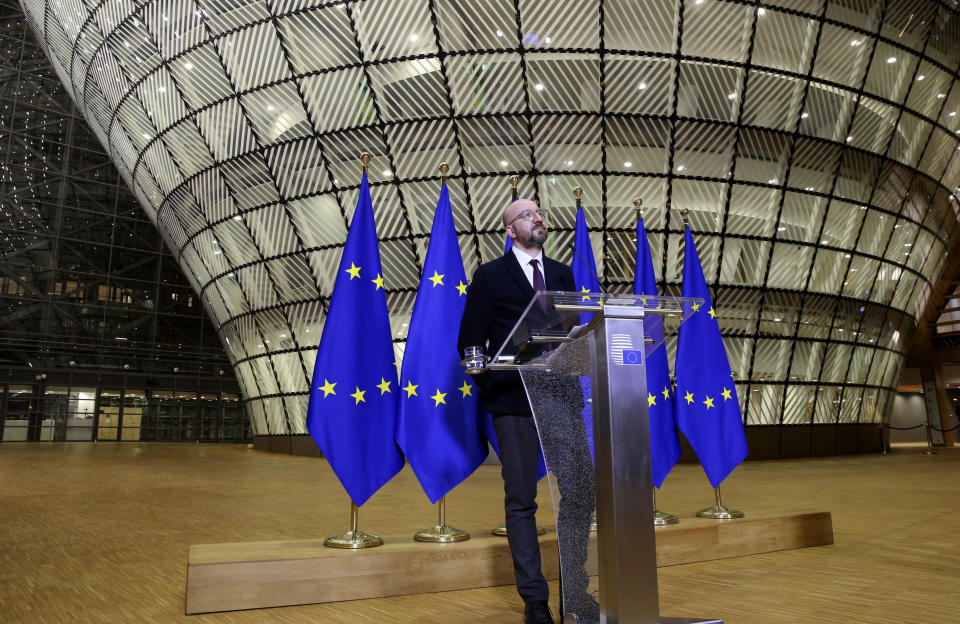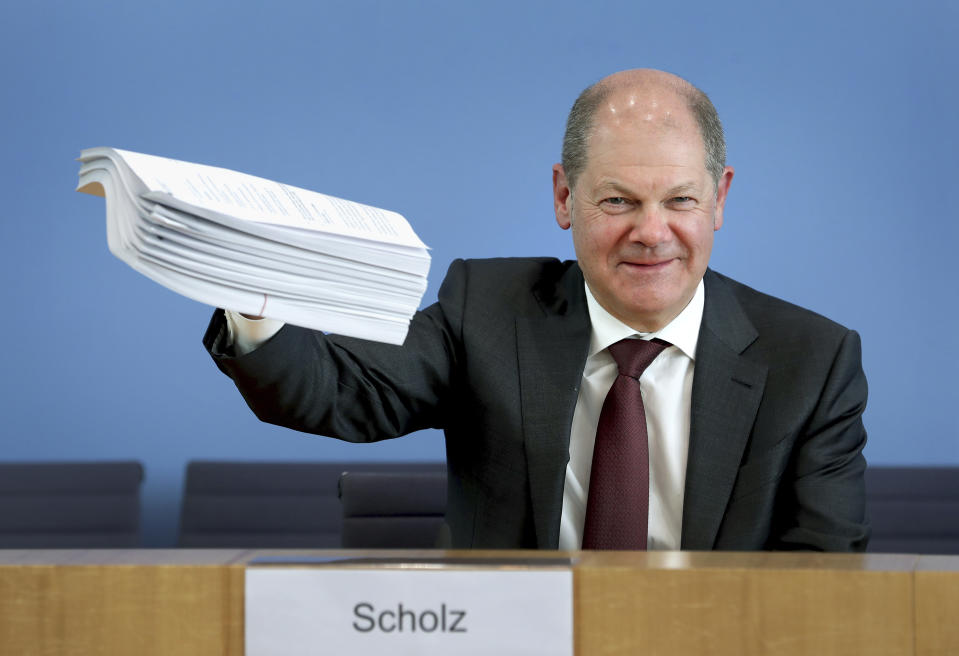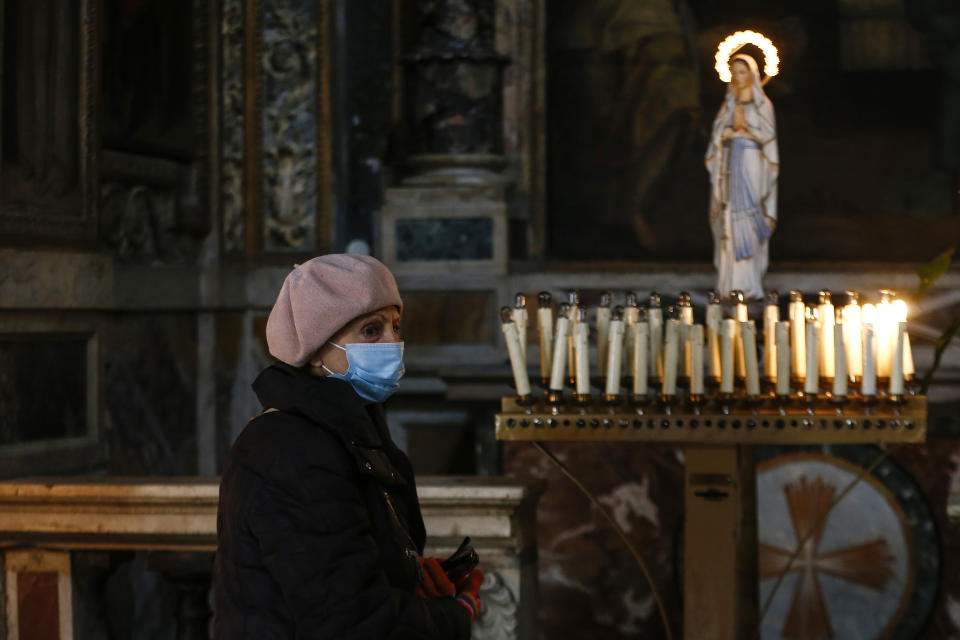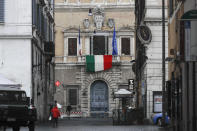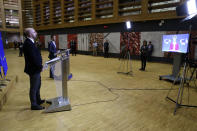Virus forces Europeans to ask: How united do we want to be?
BARCELONA, Spain (AP) — Europe’s fractured union came under new pressure this weekend, as Italy and Spain pleaded for urgent European help to withstand the virus ordeal but Germany showed reluctance to plunge into any radical new solutions.
The north-south divide that has dogged the European Union for years has resurfaced as the virus has galloped across the continent, claiming more deaths than any other region in the world.
“It is the most difficult moment for the EU since its foundation, and it has to be ready to rise to the challenge,” Spanish Prime Minister Pedro Sanchez said in a televised address Saturday night.
Sánchez warned them that a lack of solidarity to share the enormous financial burden of the health crisis and the imminent economic slowdown will put the future of the bloc in danger.
“Europe must provide a united social and economic response. We must have evidence that Europe listens and that Europe takes action.”
Europeans have shown some signs of solidarity: Germany and Switzerland are treating the sick from Italy and France. Germany and France sent masks and hospital shirts to Italy. And the EU has pledged billions in aid, and threw one of its most sacred rules out the window to help countries weather the virus-driven economic crisis.
But given the scale of this drama, critics say that’s not nearly enough.
Meanwhile, China and Russia have made a point of sending medical aid to Italy, making some Italians question where their allegiances should lie. Cuba and Albania have sent medical teams too.
‘’Europe must demonstrate that it is able to respond to this historic call,’’ Italian Premier Giuseppe Conte said late Saturday. “I will fight until the last drop of sweat, until the last gram of energy, to obtain a strong, vigorous, cohesive European response."
Spain and Italy alone account for more than half of the world's death toll, with hundreds of new victims every day.
Sánchez warned that the bloc’s southern members can't bear another round of the hard-love austerity applied in the 2008 recession, when countries like Greece and Portugal were forced to request a bailout and slash their budgets and social services.
“We must not repeat the mistakes of past crises, otherwise the next debt crisis risks coming right after corona,” Austrian Finance Minister Gernot Bluemel told the Austria Press Agency on Sunday. “We should use the existing instruments before we build new constructions that have long-term effects" on European economic stability.
This time, Spain, Italy, France and six other EU members have asked the union to share the burden of European debt, dubbed “coronabonds,” to help fight the virus. But the idea has met resistance.
German Finance Minister Olaf Scholz said Sunday that it’s important to ensure that “countries can better carry this difficult task and the extra credit they have to take on.”
Scholz said European coordination is essential, but dodged a question about coronabonds. Instead, he stressed that countries are discussing mobilizing money from the eurozone rescue fund created amid Europe’s debt crisis a decade ago, the European Stability Mechanism.
“That is a very concrete contribution to solidarity in this difficult situation,” he said.
European Commission President Ursula von der Leyen also appeared unenthusiastic about coronabonds, referring to them as “just a slogan” in a weekend interview with German news agency dpa. That prompted dismay in Italy.
But Germany is not alone in urging caution. The Netherlands, Finland and Auave similar reservations about unleashing new aid that would have long-term impact on Europe’s collective finances. Some want to save money in case the crisis gets even worse, and fear a system where frugal northerners eternally subsidize debt-laden southerners.
Amid concerns about how the EU will survive this crisis, Scholz insisted it should lead to “more Europe.”
In closing borders and retreating into nationalist policies against the spreading virus, European countries have flouted the whole idea of the EU, created in the wake of World War II to avoid future conflict via open trade, and eventually, open borders.
Bernard Kouchner, a doctor and former French foreign minister, suggested that EU treaties should be amended to address health emergencies like this one.
“This should change Europe,” he said Sunday on BFM television. Noting the failure of EU solidarity, he said, “We will learn lessons from what is happening now.”
___
Angela Charlton reported from Paris. Geir Moulson in Berlin and Colleen Barry in Milan contributed to this report.

 Yahoo Finance
Yahoo Finance 